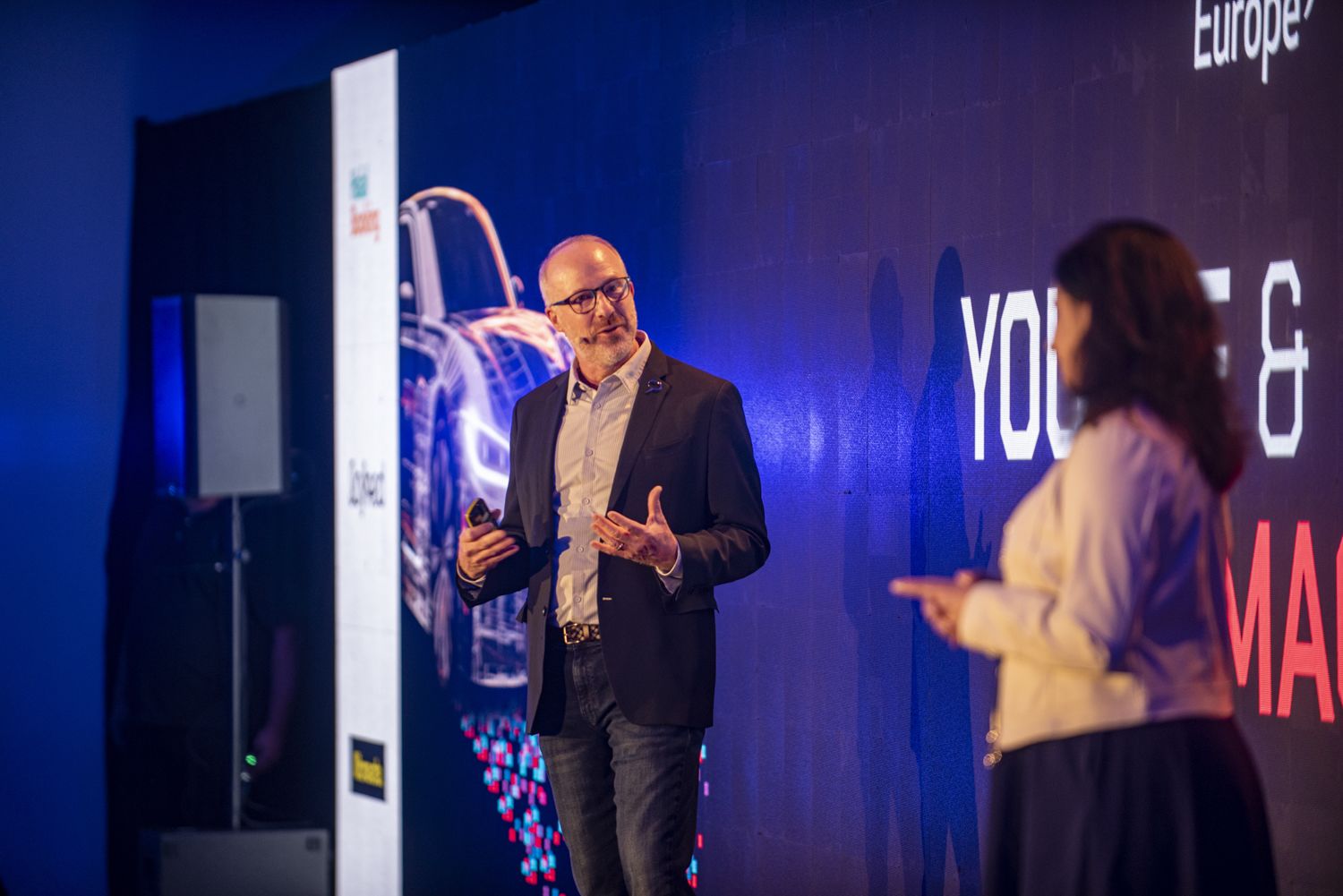Phocuswright Europe 2024 Wrap Up: GenAI is Here - Now What?

Travel demand might have slowed from the sizzling pace of 2023, but there was no lack of enthusiasm at Phocuswright Europe in Barcelona June 10-12. The travel experience is not without its problems -- clumsy booking engines, aimless recommendations and poor customer service still occur. But the industry leaders in Europe are optimistic that the technology exists today to fix the problems tomorrow. The key is to understand the available tools, embrace them, and then deploy technology smartly. The fantasy of true personalization and a seamless shopping and booking experience is getting closer but is still years away.
As for transformative technology, the energy around GenAI remains palpable. Skepticism has abated somewhat, and we are not yet near the trough of disillusionment that follows the peak of the hype cycle. But companies are being more realistic about how and when to implement AI and other technologies, and how they can transform the shopping, buying and trip experience. Meanwhile, investors are warning start-ups that incorporating AI in and of itself does not guarantee success.

Lorraine Sileo, founder, Phocuswright Research
Waiting for the Next Big Thing

What are investors looking for? They are patiently waiting to be wowed. “I think now we have all the ingredients with LLMs… with AI in general to see the next innovation wave,” Christoph Schuh said on “The Investor Panel”. Lucile Cornet, Partner at Eight Roads, sees innovation coming from the B2B side, particularly in the back office where AI can improve processes. “Airlines using chatbots and voicebots that can work with large action models and fully automate a booking experience, confirmation or change,” is the next wave, she said, because in the longer term it will lower labor costs.
On the B2C side investors are looking for innovation in discovery. No one knows what will happen to traditional search now that GenAI is so prevalent. “Search is completely changing… I am really interested to see what that is going to do to the travel world,” said Cornet. That could mean a completely new UI or the personalization we’ve all been waiting for.
What are investors not interested in? It seems vertical OTAs are less popular investments because of their high marketing and operational costs. “Zero interest in investing in another OTA,” said Bobby Demri, Managing Partner at ROCH Venture. “We think innovation has to come from something else,” Schuh added.
Is sustainability the next innovation? After all, as Demri pointed out, companies have emissions goals to reach by 2050. Demri believes there is interest in investing in a B2B business that can help companies fulfill their net zero promises. “Sustainable travel is the future of travel,” he believes. But Schuh disagrees and sees sustainability as a horizonal layer that exists inside an existing business, not as a standalone.
Watch the session here:



Digital IDs are Here… The Full Promise is Not (Yet)

Digital identify technologies can give travelers control over their own data (such as preferences and trip details) allowing for true personalization and seamless travel experiences. The results can be magical. PhocusWire’s editor in chief Mitra Sorrells said it best when she outlined a future scenario shared by panelists of the “Digital Identity (is nearly) Here” panel, including “Completely connected bookings and ultimately better travel experiences with digital IDs and biometrics to make it [travel] fully contactless and automated.” The good news: the tools are already here to make it happen. The bad news: by time all structures are in place and in synch, the full scenario could be 10 years away.
Annet Steenbergen, advisor for the EU Digital Identity Wallet Consortium, pointed out that digital IDs are not as far away as we might think, as the EU will provide digital identity wallets for its citizens and residents who want one by 2026. “You just have to fill in the data required to get the service,” said Annette, who called the plan “a game changer for the travel industry.” Of course, the next step is for travel entities to be prepared to accept and service them.
Amadeus already provides services to airlines and hotels that digitize documents such as passports and IDs before travelers leave home, streamlining check-in processes, said Francois Blanc, Managing Director, Amadeus Traveler ID Amadeus IT Group. Digital wallets hold payment details and biometrics is spreading in airports. But the future wallet (or wallets, there may be multiple ones), where the traveler is empowered to share with travel entities only what’s relevant for each trip, is still years’ away.
. The good news is that several industry initiatives are in place to move things forward. Vikas Bhola, CEO of Neoke, is already working on proof of concept and building the infrastructure to unlock the interoperability required for digital IDs and verifiable credentials. No one knows what the next 20 years will look like, but all agreed it will be “exhilarating.”
Watch the session here:
Rentals and Hotels Flip Flop

Certain travel segments that soared during the post-Covid era are seeing more normalized growth. Short-term rentals (STRs), once the darlings on the accommodations market, are facing challenges such as tougher regulations, oversupply, and continued competition from hotels. Instead of hotels copying STRs, are STRs copying hotels? In the “Short-Term Rentals at a Crossroads?” panel, speakers spoke of branding, service, and standardization.

“Now hotels are starting to move towards a more contactless experience for their guests and on the other hand short-term rentals are … creating more hotel-like amenities and hotel-like experiences and professionalism and branding that they didn’t need in the past,” said Vered Raviv-Schwarz, President and COO of Guesty. Panelists spoke of the importance for STRs to provide a unique experience for the guest while also being safe and consistent. “How do you marry uniqueness with the hotel experience” Raviv-Schwarz wondered. As for guests, “You want something special, but you don’t want to have a surprise,” quipped Sylvia Epaillard, co-CEO and chief commercial and digital officer, Interhome.
Watch the session here:
Hotels, meanwhile, have raised the bar by providing unique services and experiences catering to both business travelers and the complex preferences of leisure guests. “All of a sudden we are facing new leisure demand, looking for bigger spaces, not just connecting rooms but bigger villas… or bigger apartments, but with the level of service of a hotel,” explained Maud Bailly, CEO Sofitel Legend, Sofitel, MGallery, Emblems at Accor. Speaking on the “Beyond the Bed: An Experience You’ll Never Forget” panel, hoteliers explained how they are positioning themselves as much more than the room.

“We are in the happiness industry,” said Juan Carlos Sanjuan, Founder and President of Casual Hotels, adding there is a lot more to hospitality than making money. Unique experiences help support brand awareness at Strawberry, said Nils Korsvoll, VP Customer Journey and Product Development, Strawberry, whose multiple brands in the Nordics run the gamut from budget to luxury. Challenged with providing experiences for all chain scales, Strawberry has partnered with Live Nation in the Nordics for VIP passes, presale access, and other perks for both guests and locals in the community, “to make the brands stand out.” Considering both sides of the lodging market, there is no doubt that rentals and hotels are in a race to appeal to customers’ sentiments and desire to create lasting memories. “We are emotion makers,” explained Bailly.

Watch the session here:
What Else?

Do the big just keep getting bigger? Greg Schultz, Expedia Group’s Chief Commercial Officer, discussed strategies for expanding in Europe and globally now that the new infrastructure is in place across brands and its One Key loyalty program will be rolled out in Europe shortly. The B2B side of the business continues to see double-digit growth and collected 100 million room nights in 2023.
Watch the session here:
Meanwhile, speculation around Google’s role in the travel industry continues. Will GenAI challenge its search business or make it an even more formidable player, or partner, within the travel landscape? Chris Hemmeter, Manager Director at Thayer Ventures, on the “Pundits and Predictions” panel wonders if conversational search will democratize travel search by enabling more specialized start-ups to get noticed vs. high paying advertisers. But industry veteran and Viator founder Rod Cuthbert believes otherwise. “I think the world we live in… is one where you have these big planets… they suck things in. And I think Google, Booking, Expedia, et al, they are the big planets out there and they are going to be much better at this AI thing than anyone else.”
Watch the session here:
Other topics discussed on Center Stage included niche OTAs, rail, sustainability, business travel, global trends, tour operators and consumer behavior. All in all, Phocuswright Europe 2024 was filled with anticipation that the technologies discussed on stage would bring delight rather than disillusionment. There just might be a bit of a wait.



Photos and Videos

Watch a playlist of all the Center sessions here:
Watch a playlist of all the Innovation: Launch demonstrations here:












